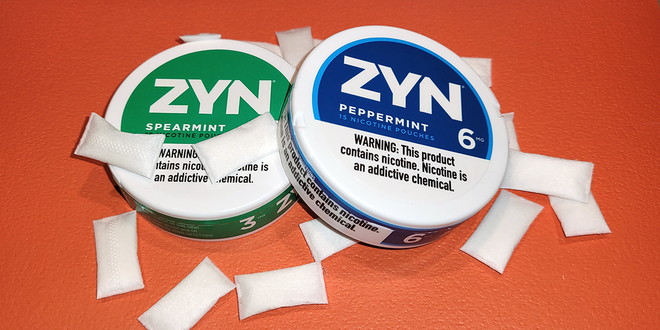The population, regrettably, does not fully comprehend the significance of good dental health for overall health. Do you know that the first line of defense against bacteria and sickness is your teeth? Instead, they’re the primary factor in your improved general health. Good dental health means no visit to the dentist for a cavity fix, losing a tooth, or going through any dental treatment.
As people with diabetes become more aware of their condition and begin taking steps to manage it better, they may find themselves at increased risk for some other complications as well, such as kidney disease and heart attack.
Cavities are one of the most common dental problems these days, and it generally appears in children. However, not many people know that cavities can lead to other health problems like heart disease, and especially for diabetes patients, gum disease can be a risk factor for diabetes complications.
In this article, we will focus on how dental health is really important for good health and what things we can do to ensure we keep our dental health better and avoid making a visit to the dentist in Bend Oregon.
Gum disease might be a risk factor for heart disease
It’s really important to protect your gums because people with gum disease are always at risk of facing heart disease and stroke. This generally happens through the bacteria that enter your bloodstream and causes inflammation, which could lead to death.
Gum diseases are avoidable and can be treated as well. Brushing and flossing regularly will help keep your gums healthy and prevent plaque buildup in between teeth that lead to gum disease. Talk to your dentist about how often you need to brush or ask them for tips on how best to do it. Your dentist may also recommend using an electric toothbrush if possible.
Cavities are one of the most common dental problems these days, and it generally appears in children. However, not many people know that cavities can lead to other health problems like heart disease, and especially for diabetes patients, gum disease can be a risk factor for diabetes complications.
While having gum disease, it’s important to react quickly. Make sure you consult with your dentist or go to the nearest dental clinic to get yourself checked so that you can avoid any possible trouble.
Cavities are a threat to good health
If you are having cavities and have not visited your dentist for a cavity fix, chances are that you are leading your good health into problems.
Cavities are caused by bacteria that feed on sugar in your mouth and produce acids that damage the enamel of your teeth. As this happens, cavities spread throughout the tooth’s surface and eventually into its core. If left untreated, this can cause tooth loss as well as painful symptoms like pain after eating or brushing with toothpaste.
Dryness in your mouth means that your saliva doesn’t flow properly through the gland behind each tooth. Saliva helps keep bacteria from sticking to teeth and gums while also keeping food particles suspended in water before they get swallowed down into your stomach. If there isn’t enough moisture present at all times during these processes, then bacteria will grow more readily than normal.
Furthermore, the same bacteria can also enter your bloodstream through an open sore. This can cause infection if not treated promptly with antibiotics or other medication such as nitrous oxide gas.
A cavity, in general, may seem like a normal dental problem, but it has complications that can cause problems for your dental health. That is why it is crucial to visit your dentist for a cavity fix in the early stages and not when it’s too late.
Periodontitis can increase diabetes
If you have periodontitis, the bacteria that cause it can also lead to other health problems. For example, diabetes is a chronic condition that can damage your blood vessels and nerves. According to a report, over 30 million Americans have diabetes. And this number is expected to rise by 33% by 2030.
As people with diabetes become more aware of their condition and begin taking steps to manage it better. They may find themselves at increased risk for some other complications as well, such as kidney disease and heart attack.
We usually take dental problems as nothing serious, but if they are not treated properly at the right time. They can lead to major health issues. That is why it is always suggested by doctors and dentists in Bend Oregon. Get a regular dental checkup so that in any case, there are even minor problems; they can be treated immediately.
This can then be dangerous and can cause various health problems, especially for diabetes patients. Given that, it’s important to ensure your mouth is not dry. And for that, you can do good things for your oral health.
While having gum disease, it’s important to react quickly. Make sure you consult with your dentist or go to the nearest dental clinic to get yourself checked so that you can avoid any possible trouble.
A dry mouth can be dangerous
A dry mouth is a common side effect of some medications and medical conditions. It can be caused by a variety of different things. A dry mouth is uncomfortable and irritating, but it’s not usually dangerous in itself. That said, there are certain things you should know. This is about this condition so that you can take care of yourself when it happens.
Dryness in your mouth means that your saliva doesn’t flow properly through the gland behind each tooth. Saliva helps keep bacteria from sticking to teeth and gums while also keeping food particles suspended. Which is in water before they get swallowed down into your stomach. If there isn’t enough moisture present at all times during these processes, then bacteria will grow more readily than normal.
This can then be dangerous and can cause various health problems, especially for diabetes patients. Given that, it’s important to ensure your mouth is not dry, and for that, you can do things like:
- Chew sugar-free gum
- Avoid too much caffeine
- Don’t use alcoholic mouthwashes
- Don’t consume tobacco
- Drink water
- Breathe through nose










